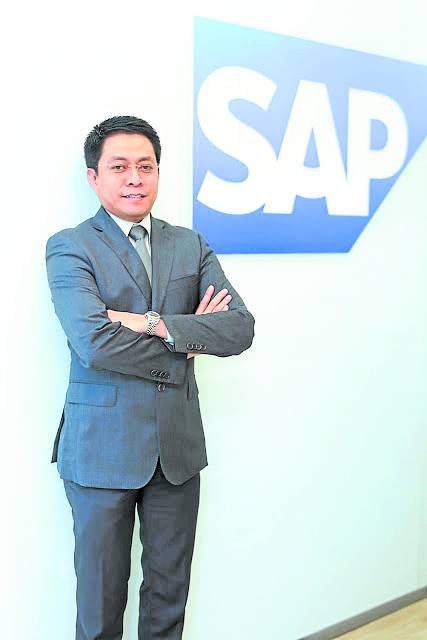Sustainability now a key driver of innovation
Recently, more companies are embracing sustainability as an integral part of their business.
Business leaders consider sustainability a strategic priority for their businesses since long-term business viability can be achieved by improving efficiency, reducing waste and carbon footprint. It also helps that by remaining relevant to their stakeholders, having sustainable business practices can help improve brand image and generate wider brand awareness.
There are four key factors that drive this:
Shareholders now expect businesses to become more sustainable.
From 2018 to 2020, there has been a 15-percent rise in the global sustainable and responsible assets in five major markets, namely, Europe, the United States, Japan, Canada, and Australasia, reaching $35.3 trillion, says a recent report released by the Global Sustainable Investment Alliance.
Article continues after this advertisementInvestors now integrate environmental, social and governance activities into investment decisions.
Article continues after this advertisementThey now devote funds to low-carbon and energy-saving projects. At least $90 trillion is expected to be spent on climate-smart infrastructure by 2030, according to the World Bank.
Consumers are making clear shifts to more sustainable products and services.
The 2020 Sustainable Market Share Index by the New York University Stern School of Business Center for Sustainable Business and IRI (Internationalized Resource Identifier) revealed that there is now 7.1 times faster growth with sustainable consumer packaged goods than conventionally promoted products.
Today’s employees make career choices based on their employers’ responsibility toward the planet.
A survey conducted by Ernst & Young, LLP in 2020 revealed that 34 percent of 2,054 teens and young adults in the United States said that they are extremely keen on environmental issues. Companies need to become sustainable-minded and reduce their carbon footprints if they are to attract millennial and Gen Z job applicants in the years to come.
As sustainability becomes even more integral, what can businesses do to ensure that they can turn themselves into sustainable enterprises?
The foundation of a sustainable enterprise revolves around core business processes and their sustainability drivers. To enable these core processes, organizations need a robust digital core, a foundation in optimizing not just the top and bottom but also the green line for sustainable business success.
Embracing digital tools to become more intelligent is also necessary to cater to four dimensions: climate action, circular economy, holistic steering and reporting, and social responsibility.
Technology also serves as a tool to achieve zero emissions, zero waste and zero inequality.
However, becoming an intelligent and sustainable enterprise is particularly challenging due to the accelerated disruptions of unexpected global phenomena, such as the pandemic and the resulting economic downturn.
These upheavals underscore the need for enterprises to adapt constantly. Amid a “never normal” world, businesses must be ready to rapidly evolve and change how their work is executed, often requiring redesigning business plans and processes.
One of the organizations that have recently strengthened their digital core is Metro Pacific Investments Corp. (MPIC).
With its diverse set of assets held through its operating companies, MPIC has been helping rehabilitate, maintain, strengthen and improve vital services in the country through the years. It has several subsidiaries covering toll roads infrastructure, power and water utilities, and health-care institutions, among others.
With such an extensive portfolio of companies, MPIC faced disparate financial reporting systems among its subsidiaries, inconsistent data sets, complex closing cycles and high-volume manual processes to meet regulatory requirements and financial reporting standards.
To address this challenge, MPIC became the first organization in the Philippines to adopt cloud technology through RISE with SAP. This Business Transformation as a Service solution offering helps them consolidate, modernize, and standardize their enterprise resource planning systems on a single platform.
MPIC can thus streamline operations across its subsidiaries, gain insights into end-to-end performance with process analytics and simplify its accounting, financial close, treasury and risk management processes.
The integration into the cloud is part of the group’s sustainability philosophy of integrating business and environmental stewardship in their investment strategies.
As a leading infrastructure investment company, MPIC is committed to contributing to the achievement of the 17 United Nations Sustainable Development Goals (SDG), with UN SDG 9, which seeks to “build resilient infrastructure, promote inclusive and sustainable industrialization and foster innovation,” as its anchor.
However, companies like MPIC cannot manage what they cannot measure. So, they must capture, monitor accurately and then optimize the sustainability drivers in crucial business processes enabled by a strong digital core.
The recent integration helps improve its operations and augment its sustainability initiatives, especially since SAP embeds sustainability into its core business processes. It helps us deliver the visibility and velocity required to inform and drive better business decisions to our customers through embedded, validated, real-time data in a holistic, integrated manner.
While previously companies had to opt between profitability and sustainability, with the right partner and system, this will no longer be the case. As an advocate of intelligent and sustainable enterprises, I believe that those who move first will win in the long run.
As the world demands organizations to step up and do their part in addressing the impact of climate change, it is time for businesses to take the necessary steps to make sustainability an integral part of corporate performance.
Though profitability still matters, new dimensions of achieving it have been added—sustainability and purpose. These determine how the organization is seen and perceived by the public. Any business that puts sustainability on the same footing as financial performance will emerge on top. —CONTRIBUTED
The author is managing director of SAP Philippines

